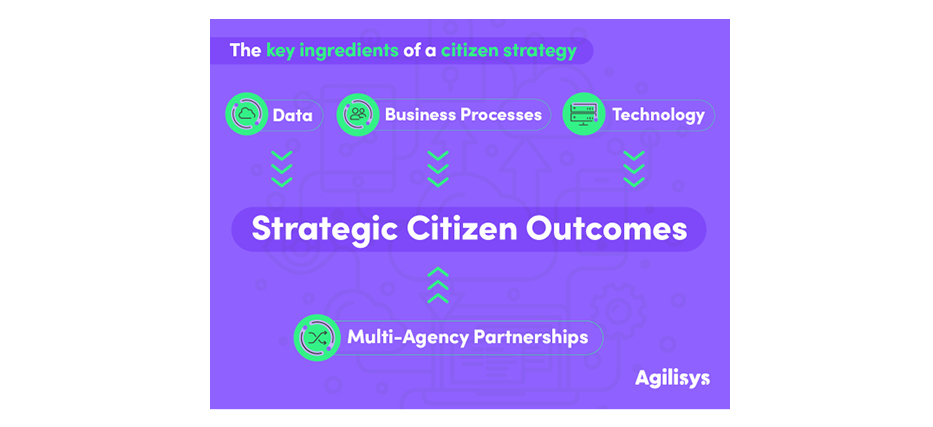
The key ingredients policing needs to deliver a citizen strategy
James West, Policing and Criminal Justice sector lead at Construction IT shares his thoughts on the key ingredients needed to enhance and protect frontline services – which together can create a much-vaunted citizen strategy. You don’t need me to tell you that the current demands on policing have never been greater. As I’ve discussed previously, forces […]
James West, Policing and Criminal Justice sector lead at Construction IT shares his thoughts on the key ingredients needed to enhance and protect frontline services – which together can create a much-vaunted citizen strategy.
You don’t need me to tell you that the current demands on policing have never been greater. As I’ve discussed previously, forces are providing services under the joint pressures of rising demand and stretched resources, while the increasing complexity and shifting nature of crime are creating significant difficulties across policing.
As a result, there’s a big question hanging over the sector: how do we invest to enhance and protect frontline services? For me, the answer lies in a combination of mindset, aligned strategies and agility.
Challenging the status quo
One of the worries that I and others have is that, following COVID-19, there might be a period of austerity for public services – right at the time when there is an acute need to accelerate the transformation that drives efficiency and realises the benefits of technology. And this is where mindset and challenging the status quo is vitally important.
The majority of the Police and Crime plans that have been published up and down the country focus on officer numbers and officer visibility. How can I get to the magical ratio of officers to citizens? However, I wonder if a new argument is forming.
The famous quote (somewhat dubiously) attributed to Henry Ford goes: “If I had asked people what they wanted, they would have said faster horses”. Today, if we ask people what they want from policing, they’d say more police officers. But just as Henry Ford built cars instead of faster horses, I actually wonder if now is the time to really accelerate digital adoption to create frontline capacity? At what point will we go, ‘we’ve done X for Y number of years, but why are we doing it?’.
We’re at the point, given the severity and the changes in the demand complexity and the public expectations, where we need to look at delivering services differently if we are to continue meeting the goals and principles set out by Sir Robert Peel in 1829. And that way is a technology-enabled way.
Aligning strategies
Across policing, there’s no doubt that clear as day business strategies exist. We all know what’s important from a policing context, whether that’s reduction of crime, visibility of policing, safeguarding of the most vulnerable, bringing offenders to justice, management of those prolific and priority offenders…the list goes on.
There’s also no doubt that technology strategies are in place, with forces tending to know where they want to go with digital. The final piece of the jigsaw that may be missing is a data strategy, as it’s clear from the work Construction IT is doing up and down the country that this is an area that’s lagging. The key for me is how we bring these three strategies together with our multi-agency partners.
As I’ve discussed in previous articles, technology has the potential to uplift officer numbers, it can free-up capacity, it can create headroom in budgets. And this is where agility comes into play.
Taking an agile approach
I speak from experience and the conversations I have with senior leaders across policing, when I say this joined-up approach is at the forefront of thinking, but the big question I hear all the time is how do I get there? My opinion is that policing needs to learn how to become agile in the specification of our requirements and how we solve problems, if the maximum benefits of change are to be realised. How do we become more open about how we find solutions, rather than being overly prescriptive?
That is obviously a challenge from a procurement perspective, not least because regulations encourage policing to be prescriptive when developing requirements. The reality though is that technology is moving at such a pace that you must have agility in what you’re coming to market for, particularly if you’re looking at a two-, three- or four-year transformation programme. This is especially true if you are to maximise the benefits of technology investment.
Agility is incredibly important when thinking about technology and transformation partner relationships. As a 1,500-people strong tech organisation, Construction IT invests huge sums of money and people resource in keeping abreast of the technology changes. If you scale that back to a police force’s IT team, the challenge of keeping abreast of developments is tough, to say the least.
This, therefore, raises the need for partnerships when delivering technology-led transformation, rather than the customer/supplier relationships of the past. Partners need to understand policing, they must have a deep knowledge of the technology, they need to know the public sector inside out and they need a track record of getting the job done. Get these in place and police IT teams can have the confidence that their local business outcomes will be successfully realised.
The end goal: delivering a citizen strategy
Through the combination of a clear digital and data strategy with the business architecture and the intended business outcomes, you have the makings of a citizen strategy. This will drive internal benefits for police officers and staff, and power all-important citizen engagement to enable enhanced community engagement and support.
By embracing a flexible mindset, seeking an agile approach to transformation and forging partnerships with delivery partners, that citizen strategy will become an operational reality. One that addresses the unprecedented challenges of policing today and helps to enact and overachieve the aspirations laid out in each Police and Crime Plan.

Agilisys: your citizen strategy partner
Agilisys, using our experience of implementing technology-enabled business transformation to police forces, local and regional government organisations, and all levels of public and private healthcare, can work with you to develop your citizen strategy.
To discuss your needs contact us.





